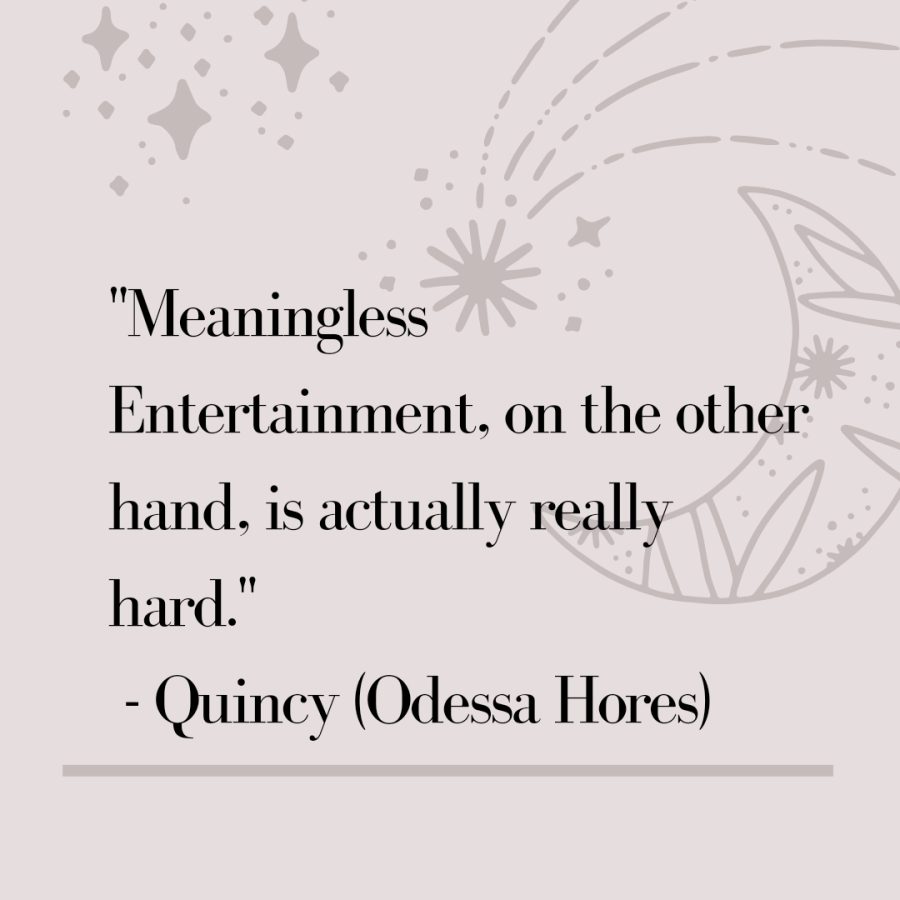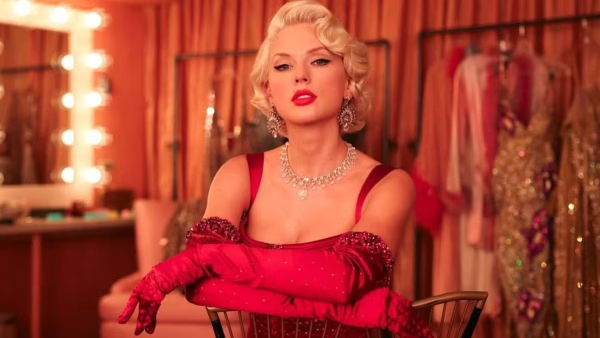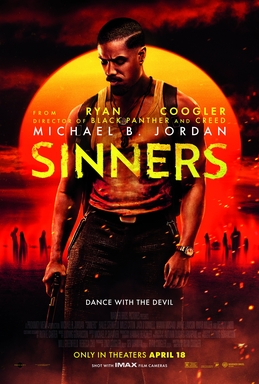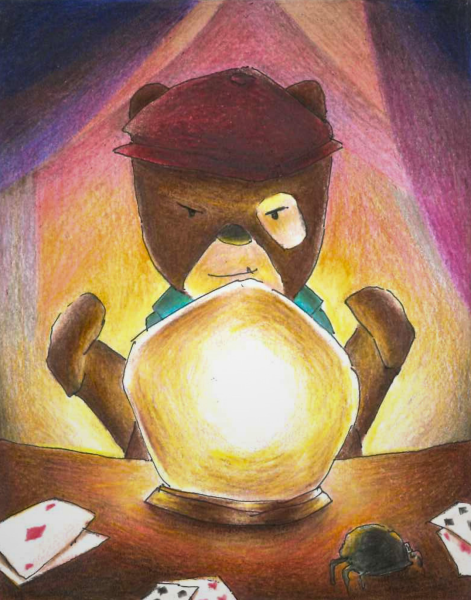Professor McCullough reviews Mr. Burns Play performed by Hilltop Players
It is easy to forget now, but, for a time, television was American culture.
Just because television no longer creates a common cultural experience, does not mean that television’s impact disappears. Television still informs what we think and perceive.
For the cast of “Mr. Burns, A Post-Electric Play,” television, and one of its most recognizable products, The Simpsons, is the only thing keeping people together.
Set in a near-future, post-electric and/or post-apocalyptic New England, the opening act of the play features six characters who have only two common experiences: death and memories of “The Simpsons.” The script does not fully reveal the specific cause of the new post-electric world. A nuclear meltdown occurred, but the audience does know that death and danger are omnipresent.
Characters Matt (Daniel White), Jenny (Delaney Byrd), Maria (Paige Fields), Sam (Benny Mounsey), Colleen (Alexis Woodard) and Gibson (Calian Byard) are people who relate to one another and to the audience only through experiences of death and television. They swap knowledge of The Simpsons as a way to distract themselves from their dire situation.
Act Two, set seven years after Act One, shows off the dexterity of the actors. The six characters and new arrival, Quincy (Odessa Hores), are now theater actors in the post-electric world. The audience finds the characters rehearsing scenes from “The Simpsons” episode, “Cape Feare” to be eventually performed in front of an audience. They don’t just rehearse the episode; they also rehearse the type of mid-90s commercials you would find airing during the original “Cape Feare.”
The script calls for the actors to strike the set in the middle of the play, as they transition scenic elements of “Cape Feare” with the elements from the commercials. The commercials included musical numbers, so White, Byrd, Fields, Mounsey, Woodard, Byard and Hores are acting, moving set pieces and singing at the same time—a remarkable feat.
Washburn sets the final act seventy-five years after Act Two. The opening of this act bombards the audience with noise, music and lights. We are given little sense as to what transpired since the end of Act Two and must piece together what we see.
It seems as if we are watching the newest version of “Cape Feare.” In this version, seriousness replaces levity. We see an epic battle between love and hate, and a set which resembles a play we might see in ancient Greece. We see a Greek chorus. Byrd becomes Bart Simpson and White becomes the evil Mr. Burns.
Both Byrd and White excel in the final act. They provide the central vocal performances and also engage in a sword fight to the death. White’s performance is so affecting that he moves the audience to cheer along with Burns’ minions.
Though jolted and a bit confused, the performances and the script forced me to reflect. At one point in the play while discussing the importance of doing creative work, Quincy proclaims, “Meaningless Entertainment, on the other hand, is actually really hard.” She’s right. Meaningless entertainment is hard because entertainment cannot be meaningless.
If humans share one characteristic, it is the knowledge that death awaits us all. Through most of human history, we have coped with this knowledge with a belief in a higher power or national purpose. But the characters in “Mr. Burns” do not identify with one another through religion or nationality. Instead, they make meaning through the only shared experience that remains, television and The Simpsons.
Television continues to shape us in ways that become difficult to articulate. But Anne Washburn’s well-crafted script expertly brought to life by the Hilltop Players crystallized the impact of television-culture as a meaning-making instrument.
It is easy to think of The Simpsons as meaningless entertainment, as something to enjoy as a distraction from our lives. But it is not meaningless. “Mr. Burns” and the excellent work of the Hilltop Players demonstrate how performance has the power to make meaning, whether we have electricity or not.
Ryan McCullough is an Associate Professor of Communication at West Liberty University.
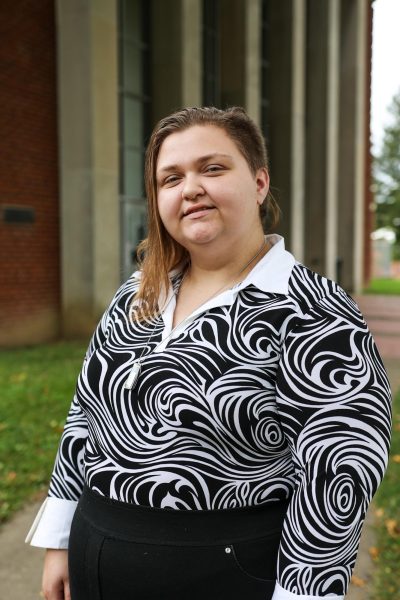
Haley Blakemore is a Senior in English Literature with a minor in Journalism from Reeader, WV. Blakemore has been on staff for the Trumpet since 2019....


